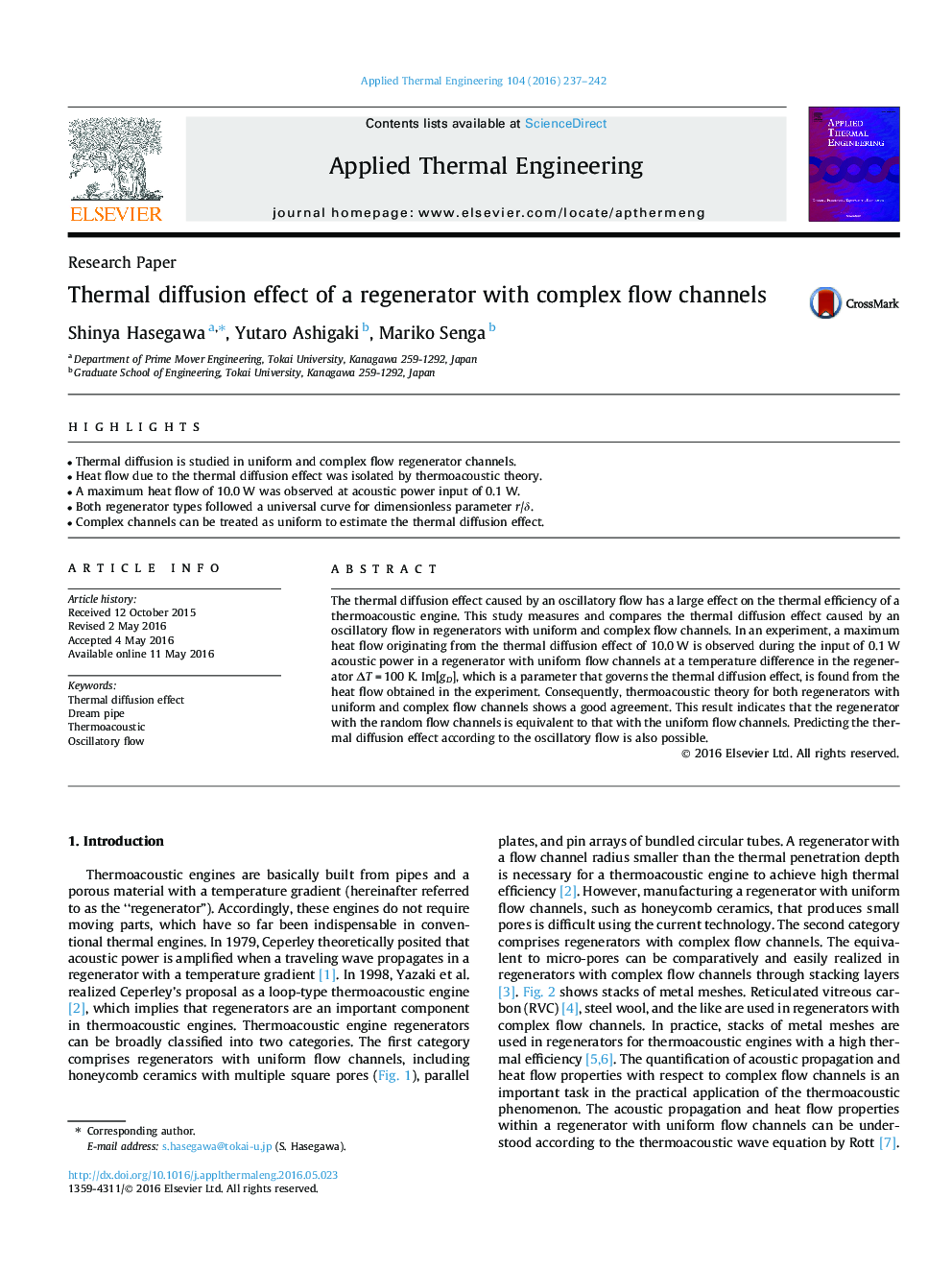| Article ID | Journal | Published Year | Pages | File Type |
|---|---|---|---|---|
| 644498 | Applied Thermal Engineering | 2016 | 6 Pages |
•Thermal diffusion is studied in uniform and complex flow regenerator channels.•Heat flow due to the thermal diffusion effect was isolated by thermoacoustic theory.•A maximum heat flow of 10.0 W was observed at acoustic power input of 0.1 W.•Both regenerator types followed a universal curve for dimensionless parameter r/δ.•Complex channels can be treated as uniform to estimate the thermal diffusion effect.
The thermal diffusion effect caused by an oscillatory flow has a large effect on the thermal efficiency of a thermoacoustic engine. This study measures and compares the thermal diffusion effect caused by an oscillatory flow in regenerators with uniform and complex flow channels. In an experiment, a maximum heat flow originating from the thermal diffusion effect of 10.0 W is observed during the input of 0.1 W acoustic power in a regenerator with uniform flow channels at a temperature difference in the regenerator ΔT = 100 K. Im[gD], which is a parameter that governs the thermal diffusion effect, is found from the heat flow obtained in the experiment. Consequently, thermoacoustic theory for both regenerators with uniform and complex flow channels shows a good agreement. This result indicates that the regenerator with the random flow channels is equivalent to that with the uniform flow channels. Predicting the thermal diffusion effect according to the oscillatory flow is also possible.
